Self Assessment tax is a crucial obligation for individuals in the UK who have additional income or haven’t had tax deducted through Pay As You Earn (PAYE). Understanding the process of paying self assessment tax is essential to meet your tax responsibilities and avoid penalties.
Whether you’re self-employed, a landlord, company director, or have other sources of income, it’s important to determine if you need to submit a Self Assessment tax return and calculate your tax liability accordingly.
There are several deadlines to remember when it comes to Self Assessment tax. The main deadline is 31 January, which requires submitting the tax return and paying any tax owed for the previous tax year. Additionally, there’s a deadline of 31 July for making a payment on account for the current tax year.
To make your Self Assessment tax payment, there are various methods available. You can pay through your online bank account, make an online or telephone bank transfer, pay by debit or corporate credit card online, pay at your bank or building society, or send a cheque through the post. Choose the method that suits you best, but remember to make the payment by the deadline to avoid penalties.
Here are some tips to make the process of paying Self Assessment tax easier:
- Set up a direct debit to make regular monthly payments instead of a lump sum.
- Make sure to have the necessary account details for HM Revenue and Customs (HMRC), including the account number and sort code.
- Consider using an online service or app to keep track of your tax payments and deadlines.
- Stay aware of payment reminders and updates from HMRC to avoid missing any important information.
By understanding the process, meeting deadlines, and choosing a convenient payment method, you can effectively fulfill your Self Assessment tax obligations and ensure a smooth tax-paying experience.
Understanding Self Assessment Tax
Self Assessment tax is a system in the United Kingdom where individuals report their income and calculate their own tax liability. It applies to various groups of individuals, including self-employed individuals, landlords, company directors, and individuals with other sources of income.
Self Assessment tax is an important process that helps ensure individuals meet their tax obligations. By accurately reporting income and calculating tax liability, individuals can fulfill their responsibilities to HM Revenue and Customs (HMRC).
It is essential to determine whether you are required to submit a Self Assessment tax return and pay tax accordingly. Failure to comply with the obligations set by HMRC can result in penalties and interest charges.
To avoid these penalties and charges, it is crucial to understand the requirements for Self Assessment tax and ensure compliance with the deadlines and procedures set by HMRC. By doing so, individuals can fulfill their tax obligations and contribute to the functioning of the UK tax system.

Important Deadlines to Remember
When it comes to Self Assessment tax, there are several important deadlines that you need to keep in mind. Failing to meet these deadlines can result in penalties and interest charges, so it’s crucial to stay on top of your tax obligations. The two main deadlines to remember are:
- 31 January: This is the deadline for submitting your tax return and paying any tax owed for the previous tax year. It’s important to gather all the necessary information and complete your tax return accurately before this date. Remember, this deadline applies even if you have already paid the tax through PAYE or if you don’t have any tax to pay.
- 31 July: This is the deadline for making a payment on account for the current tax year. If you have tax due for the current year, you’ll need to make an estimated payment by this date.
Meeting these deadlines is essential to avoid unnecessary penalties and interest charges. It’s crucial to submit your tax return and make the necessary payments on time to stay in compliance with HM Revenue and Customs (HMRC).
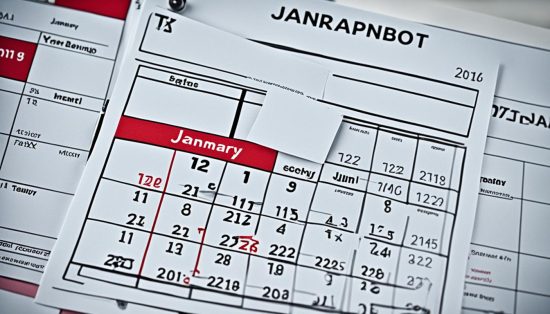
Keeping Track of Deadlines
To ensure you don’t miss any important deadlines, it’s a good idea to set up reminders for yourself. Here are a few tips:
- Use HMRC’s online services to keep track of your deadlines and receive reminders.
- Add important dates to your personal calendar or set up automatic reminders on your smartphone.
- Create a system for organizing your tax documents and receipts to streamline the tax return process.
- Consider hiring an accountant or tax advisor to help you stay on top of your tax obligations.
By staying organized and mindful of the deadlines, you can ensure that your Self Assessment tax payments are made on time and avoid any unnecessary fees or penalties.
How to Pay Self Assessment Tax in the UK?
When it comes to paying your Self Assessment tax, there are several convenient methods available. Understanding these options will help ensure that you make your payment on time and avoid any penalties or interest charges.
1. Paying through your online bank account
One of the most popular methods is making a direct payment through your online bank account. This allows you to transfer funds securely and conveniently.
2. Making an online or telephone bank transfer
Another option is to make an online or telephone bank transfer. This method is particularly convenient if you prefer not to use your online bank account or if you need assistance during the payment process.
3. Paying by debit or corporate credit card online
If you prefer to use your debit card or corporate credit card, you can make an online payment through the HM Revenue and Customs (HMRC) website. This method offers a quick and secure way to pay your Self Assessment tax.
4. Paying at your bank or building society
For those who prefer in-person payments, you can visit your bank or building society and make the payment there. This method may require you to bring your payment details or any relevant paperwork.
5. Paying by cheque through the post
If traditional methods appeal to you, you have the option to pay by cheque through the post. Simply send your cheque to the address provided by HMRC and ensure that it reaches them before the deadline.
Remember, it is crucial to choose the payment method that is the most convenient for you and make the payment by the deadline to avoid any penalties. By understanding and utilizing these different payment methods, you can fulfill your Self Assessment tax obligations efficiently and hassle-free.
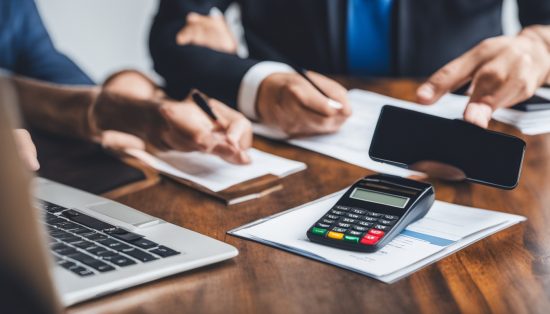
Tips for Making the Process Easier
When it comes to paying your HMRC Self Assessment tax, there are a few tips that can help streamline the process and ensure smooth transactions:
- Choose a convenient payment method: You have multiple options for paying your Self Assessment tax. You can pay online through your bank account or use a personal debit card. Alternatively, you can make payments over the phone or set up a monthly payment plan. Consider which method works best for you.
- Direct payments from your bank account: If you prefer to pay HMRC directly from your bank account, you can set up a Direct Debit. This option provides a hassle-free way to ensure that your payments are made on time and without additional steps.
- Utilize Post Office services: If you prefer to make payments in-person, you can visit a Post Office branch and pay your Self Assessment tax there. Just make sure you have the necessary account number and sort code for HMRC at hand.
- Stay proactive with payment reminders: It’s always a good idea to set up payment reminders to avoid missing deadlines. HMRC provides automated reminders through email and text messages, helping you stay on top of your payment obligations.
- Be mindful of penalties: Late payment of Self Assessment tax can result in penalties and interest charges. It’s important to pay your tax on time to avoid any financial implications. The HMRC website provides detailed information on penalties and how to avoid them.
By following these tips, you can make the process of paying your HMRC Self Assessment tax more convenient and ensure compliance with your tax obligations. Remember to always refer to the official HMRC website for the most up-to-date information and guidance.
FAQ
1. How do I pay my HMRC self assessment tax?
There are several methods available for paying HMRC self assessment tax. You can pay through your online bank account, make an online or telephone bank transfer, pay by debit or corporate credit card online, pay at your bank or building society, or pay by cheque through the post.
2. Can I pay my self-assessment tax by personal debit card?
Yes, you can pay your self-assessment tax by personal debit card. It is one of the payment methods accepted by HMRC.
3. Can I pay my self assessment tax over the phone?
Yes, you can pay your self assessment tax over the phone. HMRC provides a telephone payment service where you can make the payment using your credit or debit card.
4. How to pay self-assessment tax monthly?
If you want to pay your self-assessment tax monthly, you can set up a budget payment plan with HMRC. This allows you to make regular monthly payments towards your tax liability throughout the year, instead of paying it all at once.
5. When must self assessment tax be paid?
The main deadline for self assessment tax payment is 31 January. This is the deadline for submitting your tax return and paying any tax owed for the previous tax year. Additionally, there is a deadline of 31 July for making a payment on account for the current tax year.
6. Can I pay HMRC directly from my bank account?
Yes, you can pay HMRC directly from your bank account. You can use the Faster Payments service or the Bacs service to make the payment through your online bank account.
7. Can I pay my self-assessment tax at the post office?
No, you cannot pay your self-assessment tax at the post office. However, you can pay by cheque through the post. Make sure to include your payment slip and follow the instructions provided by HMRC.
8. What is the account number and sort code for HMRC?
The account number and sort code for HMRC vary depending on the type of tax you are paying. It is important to check the specific details provided by HMRC for the type of payment you need to make.
9. Does HMRC see your bank account?
HMRC has the authority to access your bank account information in certain circumstances. They have the power to obtain information from the banks and building societies to check if you have paid the correct amount of tax.
10. What are the penalties for late self assessment tax payment?
Penalties for late self assessment tax payment can range from ₤100 for payments up to 3 months overdue, up to ₤1,600 or more for payments over 12 months late. The penalties increase over time and can also be charged as a percentage of the tax due.










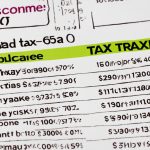
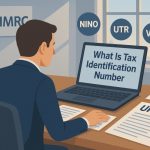
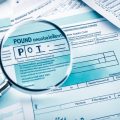

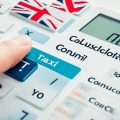


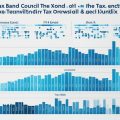


No Comments
Leave a comment Cancel